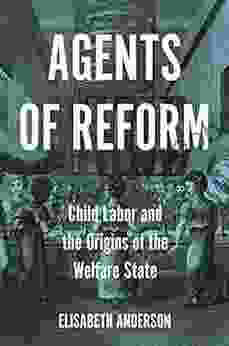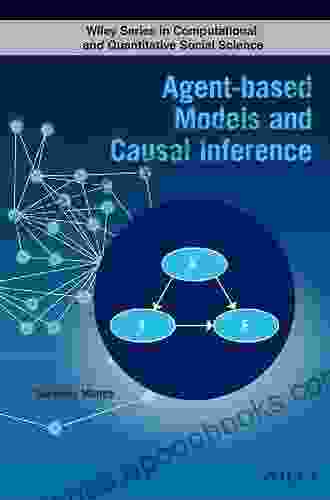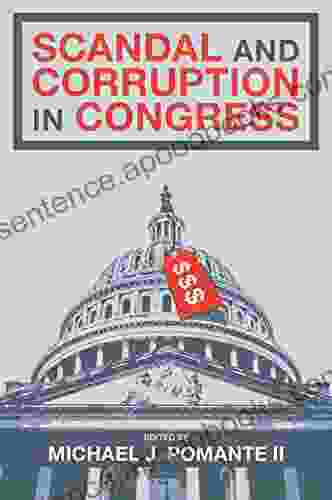Child Labor and the Origins of the Welfare State: Princeton Studies in Global Society

The issue of child labor has been a contentious one throughout history. In the early days of industrialization, children were often seen as a source of cheap labor, and they were frequently employed in dangerous and exploitative conditions. However, as the 19th century progressed, a growing movement of social reformers began to campaign against child labor. These reformers argued that children should be protected from the harsh realities of factory work and that they should instead be given the opportunity to attend school and develop their minds and bodies.
In this groundbreaking study, historian Philip Scranton examines the origins of the welfare state in the United States and Europe. Scranton argues that the movement to abolish child labor was a key factor in the development of the welfare state. By providing a compelling case for the protection of children, social reformers helped to create a new understanding of the role of government in society. The welfare state, Scranton argues, was not simply a product of economic necessity but also a moral imperative that grew out of the struggle against child labor.
In the early 19th century, child labor was widespread in both the United States and Europe. Children as young as six or seven years old were often employed in factories, mines, and other dangerous occupations. They worked long hours for low wages and were frequently subjected to abuse and neglect.
5 out of 5
| Language | : | English |
| File size | : | 27093 KB |
| Text-to-Speech | : | Enabled |
| Screen Reader | : | Supported |
| Enhanced typesetting | : | Enabled |
| Word Wise | : | Enabled |
| Print length | : | 372 pages |
| X-Ray for textbooks | : | Enabled |
The conditions in which children worked were often appalling. They were often forced to work in cramped and unsanitary conditions, and they were frequently exposed to hazardous chemicals and machinery. Many children were injured or killed on the job.
In addition to the physical dangers, child labor also had a negative impact on children's development. Children who worked long hours were often too tired to attend school, and they often lacked the opportunity to develop their social and emotional skills.
The movement to abolish child labor began in the early 19th century. Social reformers, such as Robert Owen and Friedrich Engels, began to speak out about the evils of child labor. They argued that children should be protected from the harsh realities of factory work and that they should instead be given the opportunity to attend school and develop their minds and bodies.
The movement to abolish child labor gained momentum in the late 19th century. In the United States, the National Child Labor Committee was founded in 1904. The NCLC lobbied for the passage of child labor laws and worked to raise awareness of the issue. In Europe, similar organizations were founded in many countries.
The movement to abolish child labor was successful in achieving a number of important reforms. In the United States, the Fair Labor Standards Act of 1938 finally banned the employment of children under the age of 14 in most occupations. In Europe, similar laws were passed in many countries.
The movement to abolish child labor had a profound impact on the development of the welfare state. By providing a compelling case for the protection of children, social reformers helped to create a new understanding of the role of government in society. The welfare state, Scranton argues, was not simply a product of economic necessity but also a moral imperative that grew out of the struggle against child labor.
The welfare state provides a range of social programs that are designed to protect children and other vulnerable groups. These programs include child care, health care, and education. The welfare state has played a vital role in reducing poverty and improving the lives of children around the world.
The movement to abolish child labor was a long and difficult struggle, but it was ultimately successful. The welfare state, which grew out of this struggle, has played a vital role in protecting children and other vulnerable groups. The welfare state is a testament to the power of social movements to create a more just and equitable society.
- The National Child Labor Committee
- The International Labour Organization
- The United Nations Convention on the Rights of the Child
- A young boy working in a factory
- A group of children protesting child labor
- A group of children attending school
5 out of 5
| Language | : | English |
| File size | : | 27093 KB |
| Text-to-Speech | : | Enabled |
| Screen Reader | : | Supported |
| Enhanced typesetting | : | Enabled |
| Word Wise | : | Enabled |
| Print length | : | 372 pages |
| X-Ray for textbooks | : | Enabled |
Do you want to contribute by writing guest posts on this blog?
Please contact us and send us a resume of previous articles that you have written.
 Book
Book Novel
Novel Page
Page Chapter
Chapter Text
Text Story
Story Genre
Genre Reader
Reader Library
Library Paperback
Paperback E-book
E-book Magazine
Magazine Newspaper
Newspaper Paragraph
Paragraph Sentence
Sentence Bookmark
Bookmark Shelf
Shelf Glossary
Glossary Bibliography
Bibliography Foreword
Foreword Preface
Preface Synopsis
Synopsis Annotation
Annotation Footnote
Footnote Manuscript
Manuscript Scroll
Scroll Codex
Codex Tome
Tome Bestseller
Bestseller Classics
Classics Library card
Library card Narrative
Narrative Biography
Biography Autobiography
Autobiography Memoir
Memoir Reference
Reference Encyclopedia
Encyclopedia Keith Hosman
Keith Hosman Elizabeth Wilder
Elizabeth Wilder Donald Alexander Downs
Donald Alexander Downs Emma Conway
Emma Conway Wilfred E Binkley
Wilfred E Binkley Emma Mak
Emma Mak Elisa S Amore
Elisa S Amore Arne Drews
Arne Drews Brian Allain
Brian Allain Rose Macaulay
Rose Macaulay S C Kate
S C Kate Susy Scott
Susy Scott Rafael G Esteque
Rafael G Esteque George D Kuh
George D Kuh Tr Cameron
Tr Cameron Nabiha Ali
Nabiha Ali Eloisa Amezcua
Eloisa Amezcua Roger Garside
Roger Garside Claire Gelder
Claire Gelder Jody Houser
Jody Houser
Light bulbAdvertise smarter! Our strategic ad space ensures maximum exposure. Reserve your spot today!

 Jeffery BellImmerse Yourself in the Thrilling World of Formula One: Discover the 20 Most...
Jeffery BellImmerse Yourself in the Thrilling World of Formula One: Discover the 20 Most...
 Stephen FosterElevate Your Viola Playing to New Heights: Unlocking the Secrets of Vibrato...
Stephen FosterElevate Your Viola Playing to New Heights: Unlocking the Secrets of Vibrato... Pete BlairFollow ·3.5k
Pete BlairFollow ·3.5k Virginia WoolfFollow ·12.9k
Virginia WoolfFollow ·12.9k Rod WardFollow ·12.8k
Rod WardFollow ·12.8k Easton PowellFollow ·3.2k
Easton PowellFollow ·3.2k Shawn ReedFollow ·17.5k
Shawn ReedFollow ·17.5k Richard SimmonsFollow ·19.8k
Richard SimmonsFollow ·19.8k Jamison CoxFollow ·5.4k
Jamison CoxFollow ·5.4k Jaden CoxFollow ·19.5k
Jaden CoxFollow ·19.5k

 Julian Powell
Julian PowellShetland Pony: Comprehensive Coverage of All Aspects of...
The Shetland...

 Cason Cox
Cason CoxHow Anaesthetics Changed the World: A Medical Revolution...
Imagine a world where surgery is an...

 Harold Powell
Harold PowellUnleash Your Inner Songwriter: The Ultimate Guide for...
Calling all aspiring songwriters!...

 Nikolai Gogol
Nikolai GogolUnleash Your Artistic Potential: Quick Draw Anatomy for...
In the dynamic and visually...

 Tim Reed
Tim ReedThe Rock 'n' Roll Life of Legendary Sax Man Bobby Keys
The Rock 'n' Roll Life...

 Damon Hayes
Damon HayesMoney Management Activities for Youth: A Guide to...
In an era marked by rapidly...
5 out of 5
| Language | : | English |
| File size | : | 27093 KB |
| Text-to-Speech | : | Enabled |
| Screen Reader | : | Supported |
| Enhanced typesetting | : | Enabled |
| Word Wise | : | Enabled |
| Print length | : | 372 pages |
| X-Ray for textbooks | : | Enabled |








